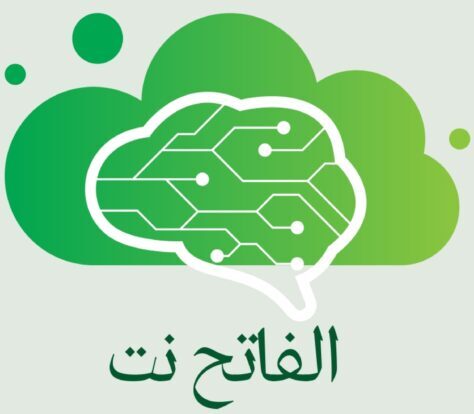In addition to impulsivity, hyperactivity, and attention deficit/hyperactivity disorder (ADHD), these conditions are frequently accompanied by difficulty with emotional regulation, social skills, and empathy. Social functioning and interpersonal connections heavily depend on emotional intelligence, which is the capacity to identify, comprehend, and regulate emotions in oneself and others. While the main purpose of ADHD medicine is to treat cognitive symptoms, there is evidence that it can also help people with ADHD develop their emotional intelligence, social skills, and empathy. This article examines the connection between emotional intelligence and ADHD medication, emphasizing methods for improving social skills and empathy in ADHD patients.
Knowing ADHD and Emotional Intelligence
There are multiple components that make up emotional intelligence, such as:
The capacity to identify and acknowledge one’s own feelings as well as those of others is known as emotional awareness.
Emotional Regulation:
The ability to effectively control and manage one’s emotions, including impulse control, stress management, and emotional reaction modulation.
Empathy is the capacity to relate to, comprehend, and experience the thoughts, feelings, and experiences of others while also being able to react in a kind and encouraging manner.
Social Skills:
The ability to successfully navigate social situations, form bonds with others, and communicate ideas clearly.
These are areas where people with ADHD frequently struggle, which can lead to issues with social interactions, resolving conflicts, and emotional stability.
ADHD Medication’s Effect on Emotional Intelligence
Although the main purpose of ADHD medicine is to treat cognitive symptoms like attention and impulse control, there is evidence that it can also benefit social and emotional intelligence in those with ADHD:
Enhanced Executive Functioning:
ADHD medicine, especially stimulants like methylphenidate and amphetamines, has been demonstrated to enhance executive functioning skills including impulse control, decision-making, and emotional self-regulation, which in turn improves emotional regulation. Medication can help people with ADHD slow down before behaving emotionally and make more deliberate and adaptable decisions in social settings by lowering impulsivity and hyperactivity.
Enhanced Empathy:
Research indicates that ADHD medication may help people with the disorder be more empathetic and capable of seeing things from other angles. Medication can help people grasp the thoughts, feelings, and views of others better, which can improve empathy and interpersonal connections by sharpening attentional focus and cognitive flexibility.
Enhanced Social Skills Development:
By enhancing focus, executive functioning, and self-control, ADHD medications can help enhance social skills. People with ADHD may be better able to participate in social conversations, listen intently, and react correctly to social cues with enhanced focus and impulse control, which could result in more fruitful relationships and social interactions.
Decreased Emotional Dysregulation:
Mood swings, impatience, or emotional overreactivity are common symptoms of emotional dysregulation in people with ADHD. By improving cognitive control and lowering impulsivity, ADHD medications can help stabilize mood and lessen emotional dysregulation, resulting in increased emotional resilience and stability.
Techniques to Improve Social Skills and Empathy
Apart from taking medication, individuals diagnosed with ADHD can employ several tactics and treatments to improve their social skills and empathy.
Instruction in Social Skills:
Individuals with ADHD can benefit from opportunities to acquire and practice critical social skills including active listening, empathy, perspective-taking, and conflict resolution by taking part in social skills training programs or therapy groups.
Practices related to mindfulness and emotional regulation, such as progressive muscle relaxation, deep breathing, and meditation, can assist people with ADHD in better controlling their emotions, lowering their stress levels, and developing their self-awareness. People can become more resilient and emotionally intelligent by practicing mindfulness.
Role-playing and Modeling:
For people with ADHD, role-playing and modeling can be useful methods for teaching social skills and empathy. People can increase their social competence and confidence by practicing acceptable behaviors and modeling real-life social situations.
Social Coaching and Support:
Having a social coach or mentor by your side can help people with ADHD manage relationships and social situations by offering them individualized advice, criticism, and support. A social coach can assist people in pinpointing their areas of weakness, establishing objectives, and formulating plans for improving their empathy and social skills.
Conclusion:
By strengthening focus, impulse control, and cognitive functioning, ADHD medication can be very helpful in helping people with ADHD develop their emotional intelligence, social skills, and empathy. medicine by itself, however, is insufficient to address all facets of emotional intelligence; in order to do this, techniques and interventions that focus on the development of social skills, emotional regulation, and empathy must be used in addition to medicine.
People with ADHD can improve their social abilities, forge better bonds with others, and handle social situations more skillfully by taking medication together with social skills training, mindfulness exercises, and social support. People with ADHD can gain the social skills and empathy necessary to succeed in both their personal and professional life with the correct assistance, tools, and interventions.









